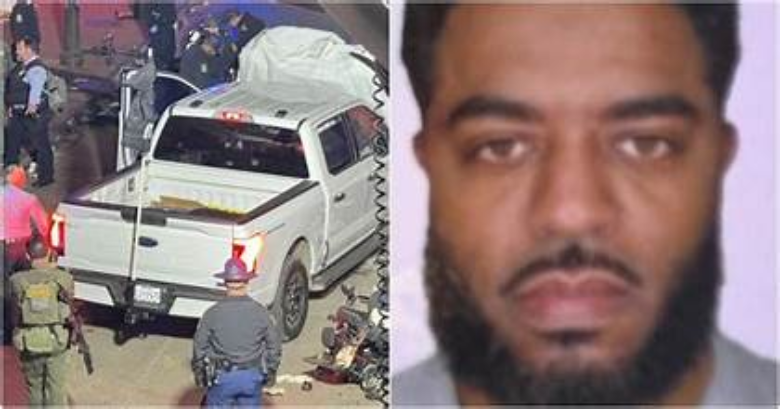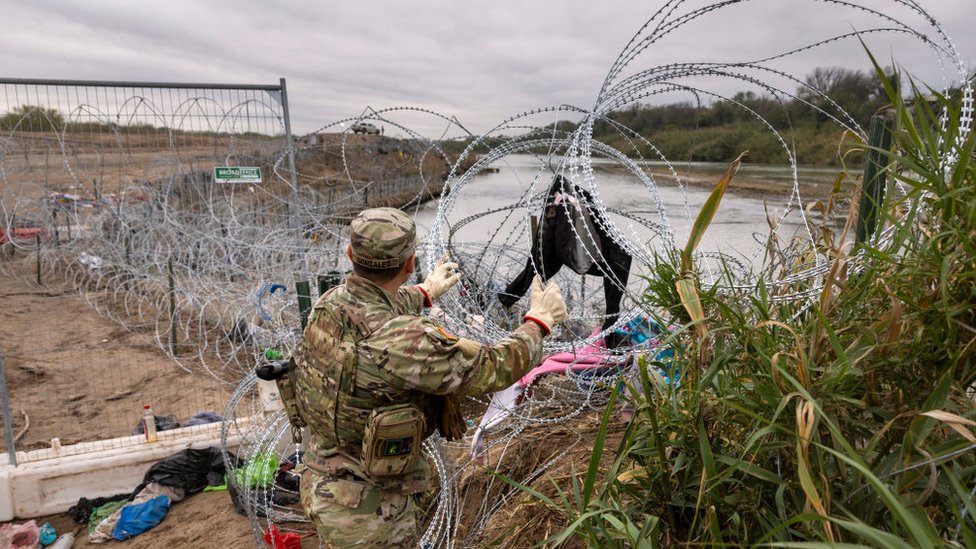The Masjid Bilal ISGH mosque in Houston, Texas, has ignited a firestorm of controversy after reportedly instructing its members not to cooperate with FBI investigators. Instead, the mosque advised its congregation to direct all inquiries to the Council on American-Islamic Relations (CAIR) or the Islamic Society of Greater Houston (ISGH). Critics argue that this directive obstructs justice during a critical counter-terrorism investigation.
The controversy stems from the investigation into Shamsud-Din Jabbar, a 42-year-old U.S. Army veteran and convert to Islam, who carried out a deadly attack in New Orleans. Jabbar’s actions are being investigated as an act of terror. He is believed to have been associated with Masjid Bilal ISGH, where he attended services after moving to the Houston area. Family members describe Jabbar’s behavior as increasingly erratic in recent years, leading to strained relationships and concerns over his radicalization.
Jabbar’s transition into a predominantly Muslim community north of Houston coincided with his attendance at Masjid Bilal ISGH. Following the New Orleans attack, the FBI launched an investigation into his background and potential connections to radical influences, including the mosque.
In the aftermath of the tragedy, Masjid Bilal ISGH issued a statement via Facebook that has drawn significant backlash. The message, signed by mosque leadership, urged members to avoid speaking to both the media and the FBI. Instead, individuals contacted by law enforcement were instructed to redirect inquiries to CAIR or ISGH.
The full statement reads:
Alaikum Brothers and Sisters,
I’m sure many of you have heard about the tragic events that took place in New Orleans this morning that are now being classified as an “act of terror” by the FBI.
I want to emphasize the importance of everyone to stay very vigilant and aware of your surroundings.
The safety of our community is the most important thing.
If anyone is contacted by the media, it is very important that you do not respond. If approached by the FBI and a response is necessary, please refer to CAIR and ISGH.
It is crucial that we stay united at this time as we condemn these terrible acts. Please stay safe.
JazakAllahu Khairun,
Masjid Bilal Management
Critics argue that the mosque’s directive undermines law enforcement’s ability to gather critical information and raises concerns about transparency within the community. The involvement of CAIR, an organization with a history of controversial ties to extremist groups, has intensified scrutiny.
“This type of response erodes trust between law enforcement and communities. It obstructs justice and hampers investigations that are vital to national security,” said a former FBI agent specializing in domestic terrorism. Others argue that the mosque’s directive prioritizes protecting its members’ civil liberties over aiding a critical counter-terrorism investigation.
The investigation into Jabbar’s life has unveiled troubling details about his transformation. Once a U.S. Army staff sergeant, Jabbar’s radicalization reportedly began after his discharge from the Army Reserve in 2020. His family described his descent into erratic behavior and isolation following his conversion to Islam.
After moving to Houston, Jabbar became part of a predominantly Muslim neighborhood and began attending Masjid Bilal ISGH. This association has led FBI investigators to question the mosque’s potential role in his radicalization and to explore any links to extremist groups.
The New Orleans attack, which left multiple victims dead and injured, is being treated as a premeditated act of terror. Law enforcement continues to investigate whether Jabbar acted alone or had connections to broader networks. The FBI and local law enforcement have emphasized the importance of transparency and cooperation from Masjid Bilal ISGH.
The mosque’s actions have reignited debates about the balance between civil liberties and counter-terrorism efforts. While some advocates argue that the directive aims to protect the rights of its members, critics contend that it casts suspicion on the institution and its leadership.
The tragedy in New Orleans and the subsequent controversy surrounding Masjid Bilal ISGH highlight the challenges of balancing community relations, religious freedom, and national security. As the investigation unfolds, questions remain about how to effectively address the risks of radicalization while fostering trust and cooperation between law enforcement and local communities.



all those that do not work with the FBI needs to be arrested and if possable be deported
if the people refusing to cooperate with the FBI are not naturalized US citizens, take them into custody and deport them immediately. This is a criminal investigation and if people wish to disrupt the process, get rid of them. We need to be tougher on terrorists now – not later – our streets should be safe for our citizens.
Another example of why we are stupid to allow strict Muslims to immigrate to America. If they follow Sharia law, it means that religious law takes precedence over secular law. It’s laudable that they want to look out for each other but the best way to do that is cooperate with the investigation and ridding their followers of terrorists. Directing them to CAIR, who are terrorist funded and supportive of Anti-Jewish violence is absurd. Alas, strict Muslims are not loyal to America and promote an environment that invites radicalism. This Imam should be arrested for obstruction of justice.
and with that, they should be given a free ticket out of this or any sane country.
This will be remembered.
The Muslims need to be ejected from this country, if they won’t assimilate,